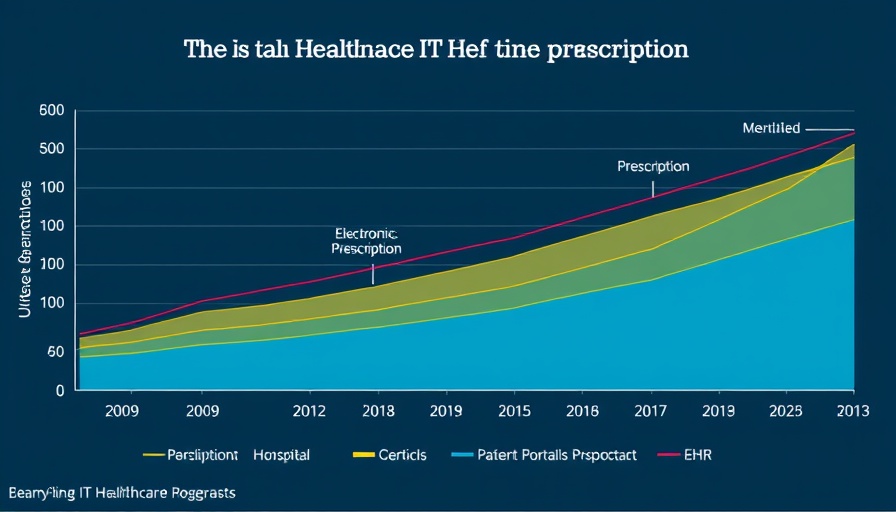
The Rise of Patient-Centric Care: A Health IT Revolution
Over the past decade, the healthcare landscape has undergone transformative changes, significantly fueled by advancements in health information technology (Health IT). A recently published report from the U.S. Office of the National Coordinator for Health Information Technology reveals vital trends highlighting the shift towards patient-centric care, which is increasingly enabled by technological innovation.
Significant Improvements in Interoperability
One of the most remarkable advancements has been in interoperability—the ability for different healthcare systems to communicate and share patient data effectively. As of now, 70% of hospitals engage in electronic data exchange across four essential domains: finding, sending, receiving, and integrating patient health information. This marks a dramatic rise from just 23% in 2014. Such progress not only streamlines patient care but also directly impacts patient outcomes, showcasing the importance of seamless information exchange.
The E-Prescribing Surge and Its Benefits
E-prescribing systems have also reached near-universal use, with 92% of prescribers adopting this technology. This shift enhances prescription accuracy and boosts patient safety, especially with controlled substances. Nevertheless, challenges remain, particularly in achieving consistent implementation across various healthcare settings, suggesting further refinement of practices is necessary.
Empowering Patients Through Access to Health Information
Patient empowerment is another positive change, with 97% of hospitals and 65% of physicians providing online access to health records. This increase has significantly engaged patients in their healthcare journey. However, disparities in access remain a challenge. As patient access to medical records more than doubled from 25% in 2014 to 57% in 2022, it is crucial for ongoing efforts to ensure equitable access for all individuals.
Future Directions of Health IT
The future looks promising as initiatives like TEFCA seek to strengthen health information sharing, where advanced technology integration will pave the way for improved patient outcomes. As we steer into the next decade, it’s essential for healthcare stakeholders to tackle remaining equity issues and reinforce nationwide interoperability. This will create a more inclusive, efficient, and patient-centered healthcare system.
As parents and individuals navigating healthcare for themselves and their children, understanding these advancements can enhance your healthcare experiences. Staying informed about Health IT’s evolution will empower you to make better health decisions.
 Add Row
Add Row  Add
Add 




 Add Row
Add Row  Add
Add 


Write A Comment